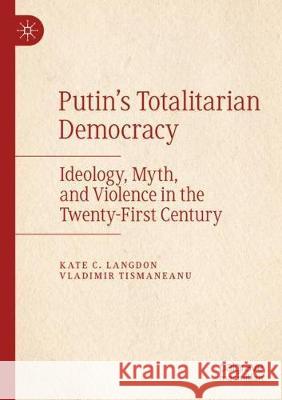Putin's Totalitarian Democracy: Ideology, Myth, and Violence in the Twenty-First Century » książka
topmenu
Putin's Totalitarian Democracy: Ideology, Myth, and Violence in the Twenty-First Century
ISBN-13: 9783030205812 / Angielski / Miękka / 2020 / 248 str.
Putin's Totalitarian Democracy: Ideology, Myth, and Violence in the Twenty-First Century
ISBN-13: 9783030205812 / Angielski / Miękka / 2020 / 248 str.
cena 442,79
(netto: 421,70 VAT: 5%)
Najniższa cena z 30 dni: 385,52
(netto: 421,70 VAT: 5%)
Najniższa cena z 30 dni: 385,52
Termin realizacji zamówienia:
ok. 22 dni roboczych.
ok. 22 dni roboczych.
Darmowa dostawa!
Kategorie BISAC:
Wydawca:
Palgrave MacMillan
Język:
Angielski
ISBN-13:
9783030205812
Rok wydania:
2020
Wydanie:
2020
Ilość stron:
248
Oprawa:
Miękka
Wolumenów:
01











